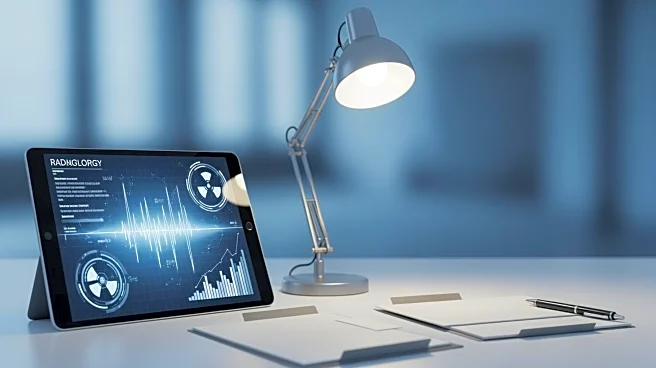What's Happening?
In Italy, thousands of protesters and strikers demonstrated in solidarity with Palestinians in Gaza, leading to significant disruptions across the country. The strike, organized by grassroots unions representing various sectors, called for a 24-hour general strike affecting public transportation, trains, schools, and ports. Major cities like Rome experienced long delays in national train services and limited public transport availability. In Milan, tensions escalated as protesters attempted to storm the central train station, resulting in clashes with police who used pepper spray. Similar disruptions occurred in Bologna, where police deployed water cannons to disperse demonstrators blocking a highway. The protests were aimed at denouncing the perceived inaction of Italian and EU governments regarding the humanitarian crisis in Gaza.
Why It's Important?
The strike highlights growing international concern over the humanitarian situation in Gaza, where ongoing conflict has resulted in significant casualties and displacement. The actions of Italian workers reflect broader dissatisfaction with governmental responses to the crisis, potentially influencing public policy and international relations. Italy's government, led by Premier Giorgia Meloni, faces increasing domestic pressure to adopt a firmer stance on Israeli policies. The protests underscore the potential for civil unrest to impact political decisions and international diplomacy, particularly as Italy remains a close ally of Israel within the EU. The situation in Gaza continues to be a focal point for global humanitarian advocacy, with implications for international peace efforts and regional stability.
What's Next?
The Italian government may face increased pressure to reconsider its stance on the Israeli-Palestinian conflict, especially as domestic and international calls for action grow louder. The upcoming U.N. General Assembly could serve as a platform for further discussions on the recognition of a Palestinian state, potentially influencing Italy's foreign policy. Additionally, continued protests and strikes could lead to further disruptions, prompting government officials to address the concerns of unions and civil society groups. The broader international community may also intensify efforts to mediate the conflict and provide humanitarian aid to Gaza, seeking a resolution to the ongoing crisis.
Beyond the Headlines
The strike in Italy reflects a deeper ethical and cultural dimension, as citizens express solidarity with Palestinians and challenge governmental policies. This movement may inspire similar actions in other countries, contributing to a global dialogue on human rights and conflict resolution. The protests also highlight the role of civil society in shaping public discourse and influencing political agendas, emphasizing the power of collective action in advocating for change.









